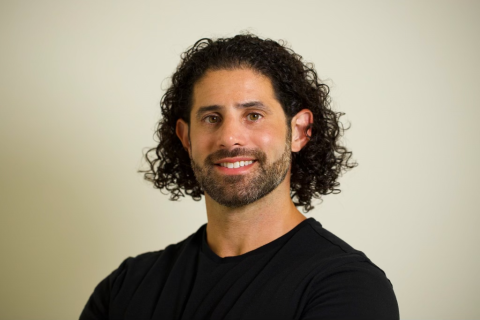An Ear for Industry Innovation

Dan Radin B.M. ’04 had 30 different snare drums while he was at Berklee.
The drummer, who majored in music business/management, wasn’t trying to build some sort of monster drum kit to outdo Rush virtuoso Neil Peart’s setup. He just wanted to be prepared to deliver the perfect tone for any project.
“I was just so fascinated with tone, and having the right three or four snare drums to take to a session was really important to me,” Radin says. “If I could pick the right ride cymbal, if I could pick the right hi-hats and snare drums to go on the track, it could make all the difference in the world.”
In his post-Berklee career, Radin hasn’t needed a quiver of snare drums. But he’s succeeded over and over in his chosen field, emerging audio technologies, by using the same philosophy he employed at those college sessions with his classmates: Come prepared to deliver whatever is needed for any project.
Radin’s philosophy has helped him over a nearly 20-year career that spans the industry: analog instrument and digital instrument production, software and hardware, established markets and fresh landscapes, startups and global brands. Along the way, he’s logged time with German hi-fi masters Sennheiser and audio software pioneers iZotope, and he’s helped bring nearly a hundred products to market, including his own podcasting software startup, Auxbus.
Radin wanted to innovate like a musician but in the world of music tech.
The road to advanced audio tech started at Berklee when he landed an internship at Zildjian, the 400-year-old cymbal manufacturer beloved by everyone from Ringo Starr ’22H to Travis Barker. The gig was, he says, “a dream come true, as a drummer.” But it wasn’t the right long-term fit. Radin wanted to innovate like a musician but in the world of music tech.
While at Berklee, he won a scholarship to the National Association of Music Merchants (NAMM) trade show, where a mock interview with Sennheiser turned into a real interview. Radin landed the job and later went on to work with other audio tech companies, many of which included fellow Berklee alumni. Notably, he helped Ryan Gruss B.M. ’00 build the Loop Loft—Gruss’s boutique sample shop featuring loops and beats by A-list musicians—that was eventually sold to music-tech company Native Instruments.
“Dan was super helpful in setting up [Loop Loft] partnerships during a three-year period where you could definitely see the growth curve go up,” Gruss says.
But while Radin has watched—and helped jump-start—music industry revolutions that have changed how artists write, record, and perform, he hasn’t seen a revolution in how musicians get paid. Radin rightly notes that new tech, including projects he’s worked on, is most often used to resell old music (the transition from vinyl to CDs, CDs to downloads, downloads to streaming) rather than to improve musicians’ compensation.
Recently, Radin worked as the chief operating officer at Controlla, a startup that aims to create a new revenue stream for musicians by building a technology that lets fans remix and rebuild tracks from their favorite artists. At Controlla, he says, he “saw a chance for music creators to be paid anew.” The company needs funding to push the tech into the marketplace, but Radin believes in the idea.
Radin’s latest reinvention started in September, when he began a job as senior director of product management at Sorenson Communications, a major developer of communication products and services for people who are Deaf or hard-of-hearing. He will act as both an intrapreneur and as a coach to the product teams—roles that will give him a lot of freedom to deliver whatever is needed to keep the technological innovations coming.
“This new role continues my career arc of using audio technology to touch increasingly more people’s lives,” Radin says, adding, “It brings me closer to doing work that genuinely benefits social good.”
This article appeared in the fall/winter 2022 issue of Berklee Today.




